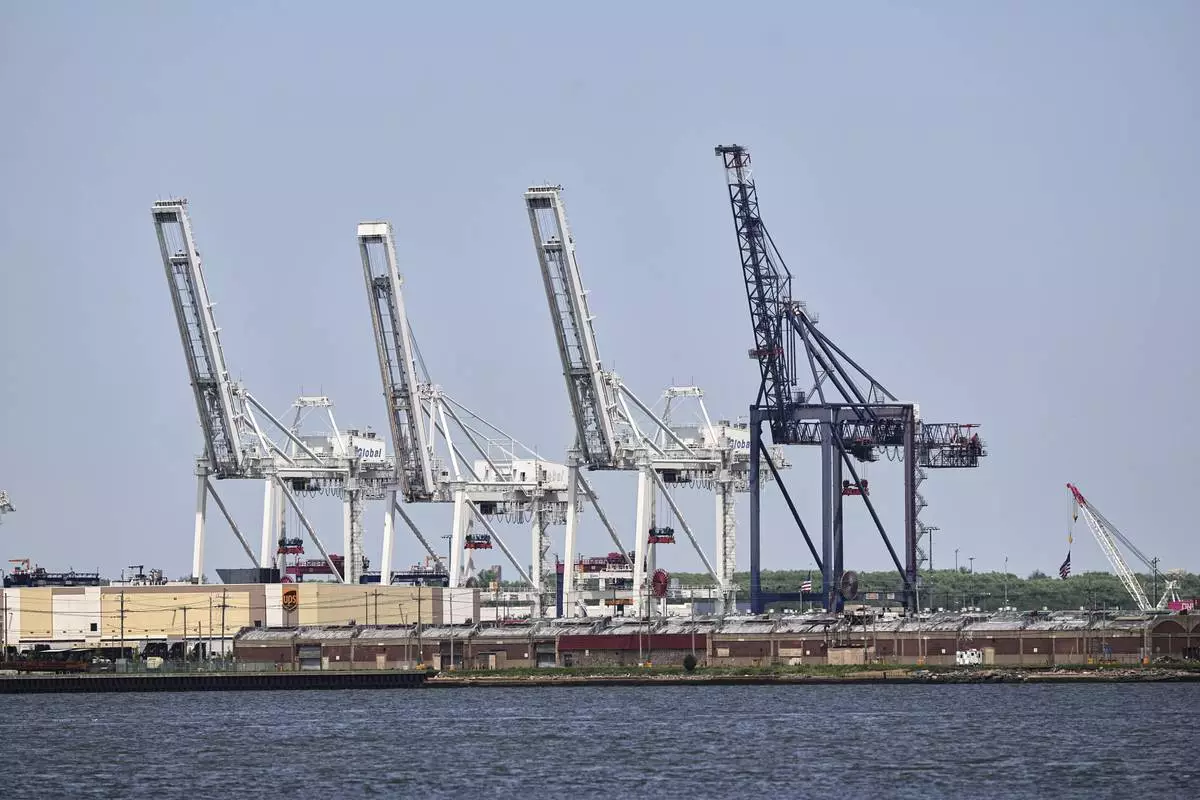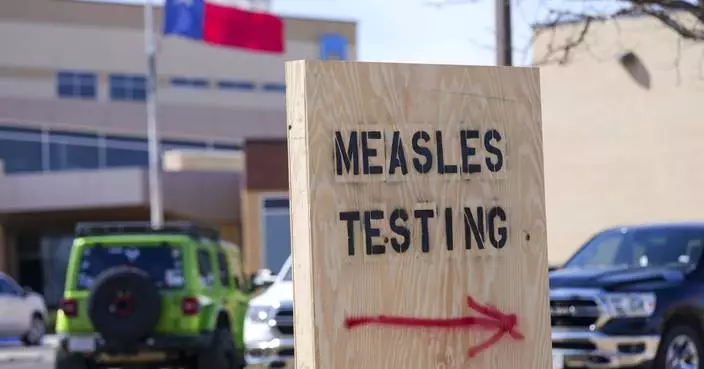Sylvia Miles, an actress and Manhattan socialite whose brief, scene-stealing appearances in the films "Midnight Cowboy" and "Farewell, My Lovely" earned her two Academy Award nominations, died Wednesday.
Miles died in an ambulance in New York on the way to a hospital after complaining to a home health care worker that she wasn't feeling well, her friend, fashion-industry publicist Mauricio Padilha, told The Associated Press. The cause is not yet clear.
Accounts of Miles' age vary widely. Padilha and other sources say she was 94. Past reporting from the AP puts her age at 86.
Miles was a veteran actress but not a widely known name when she appeared onscreen for about six minutes in 1969's "Midnight Cowboy." In her sole scene, she plays a brassy Manhattan woman who invites an aspiring male prostitute from Texas, played by Jon Voight, up to her penthouse for sex, but ends up taking money from him instead.
"You were going to ask me for money?" Miles' character, Cass, says as she breaks into increasingly angry mock-tears. "Who the hell do you think you're dealing with? ... In case you didn't happen to notice it, you big Texas longhorn bull, I'm one hell of a gorgeous chick!"
In 1975's "Farewell, My Lovely," which starred Robert Mitchum as detective Philip Marlowe, her screen time is only slightly longer as a down-on-her-luck entertainer who swaps information for a bottle of booze.
The fleetingly brief roles both got her Oscar nominations.
Her appearances in real life were just as memorable for those who came across her.
"She was pretty much the same person off screen as she was on screen," Padilha said. "She was quite a character."
Miles was born in, and became a lifelong resident of, Manhattan, where she was married and divorced three times and had no children.
She studied at The Actors Studio, making her name in a series of Off-Broadway roles starting in the 1950s, and moving on to movies in the 1960s.
Her film credits included 1972's Andy Warhol-produced "Heat," 1987's "Wall Street" and its 2010 sequel "Wall Street: Money Never Sleeps," and 1988's "Crossing Delancey."
Her TV roles included guest appearances on "Miami Vice," ''One Life to Live" and "Sex in the City."
Miles was a competitive chess player, according to the New York Times, which twice featured her in its coverage of the game.
And she went, it seems, to nearly every party in New York for a time, becoming as beloved for her outgoing personality and flamboyant fashion sense than as for her acting.
"She shows up at premieres, screenings, receptions, teas and charity cocktail parties," said a 1976 article in People magazine titled, "What would a Manhattan party be without the ubiquitous Sylvia Miles?"
"I get invited because I'm fun," Miles told People at the time. "I have a good sense of humor. I look good. I'm not bad to have at a party."
Even after the 9/11 attacks, when the city was in a state of fear and mourning for months, she was quick to start socializing again, attending a Broadway opening just over a week later.
"Honey, this is a known jungle to me," she told the AP outside the play. "I am not afraid of anything. The animals in this jungle I can handle."
Follow AP Entertainment Writer Andrew Dalton on Twitter: https://twitter.com/andyjamesdalton .
UNITED NATIONS (AP) — The United Nations on Thursday forecast slower global economic growth this year and next, pointing to the impact of the surge in U.S. tariffs and increasing trade tensions.
U.N. economists also cited the volatile geopolitical landscape and threats of rising production costs, supply chain disruptions and financial turbulence.
“These days, there’s so much uncertainty in the air,” said Shantanu Mukherjee, director of the Economic Analysis and Policy Division at the U.N. Department of Economic and Social Affairs.
“It’s been a nervous time for the global economy,” he told reporters while launching the midyear forecast. “In January this year, we were expecting two years of stable — if subpar — growth, and since then, prospects have diminished, accompanied by significant volatility across various dimensions.”
The U.N. is now forecasting global economic growth of 2.4% this year and 2.5% next year — a drop of 0.4 percentage point each year from its projections in January. Last year, the global economy grew 2.9%.
Mukherjee said the slowing is affecting most countries and regions, but among the most severely hit are the poorest and least developed countries, whose growth prospects have fallen from 4.6% to 4.1% just since January.
“That translates into a loss of billions in economic output for the most disadvantaged of countries,” which are home to over half the global population living in extreme poverty, he said.
The world’s developed and developing countries also are projected to suffer, according to the U.N. report.
Economic growth in the United States is now projected to drop significantly, from 2.8% last year to 1.6% this year, it said, noting that higher tariffs and policy uncertainty are expected to weigh on private investment and consumption.
China’s growth is expected to slow to 4.6% this year from 5% in 2024 as a result of subdued consumer sentiment, disruptions in its export-oriented manufacturing companies, and continuing challenges in its property sector, the report said.
The European Union’s growth is forecast to remain the same this year as it was last year — just 1%, the report said, citing weaker net exports and higher trade barriers. The United Kingdom’s economic growth of 1.1% last year is projected to fall to 0.9%.
Weakening trade, slowing investments and falling commodity prices are also forecast to erode growth in other major developing economies, including Brazil, Mexico and South Africa.
India will remain one of the world’s fastest-growing large economies, but the U.N. forecast said its growth is expected to drop from 7.1% in 2024 to 6.3% this year.
The U.N.’s global economic growth forecast is lower than the International Monetary Fund’s.
On a more positive note, Mukherjee said the U.N. is expecting that bilateral negotiations will lead to lower tariffs, although he said they won’t return to the levels before U.S. President Donald Trump’s February announcement.
Nonetheless, Mukherjee said, resolving uncertainties would help individuals and businesses move forward with economic decisions and that would have a positive impact on the global economy.

FILE - The United Nations flag flies on a stormy day at the U.N. during the United Nations General Assembly, Sept. 22, 2022. (AP Photo/Ted Shaffrey, File)

Container cranes sit idle at the port of the port of New York & New Jersey in Bayonne, N.J., Monday, May 12, 2025. (AP Photo/Matt Rourke)






















































